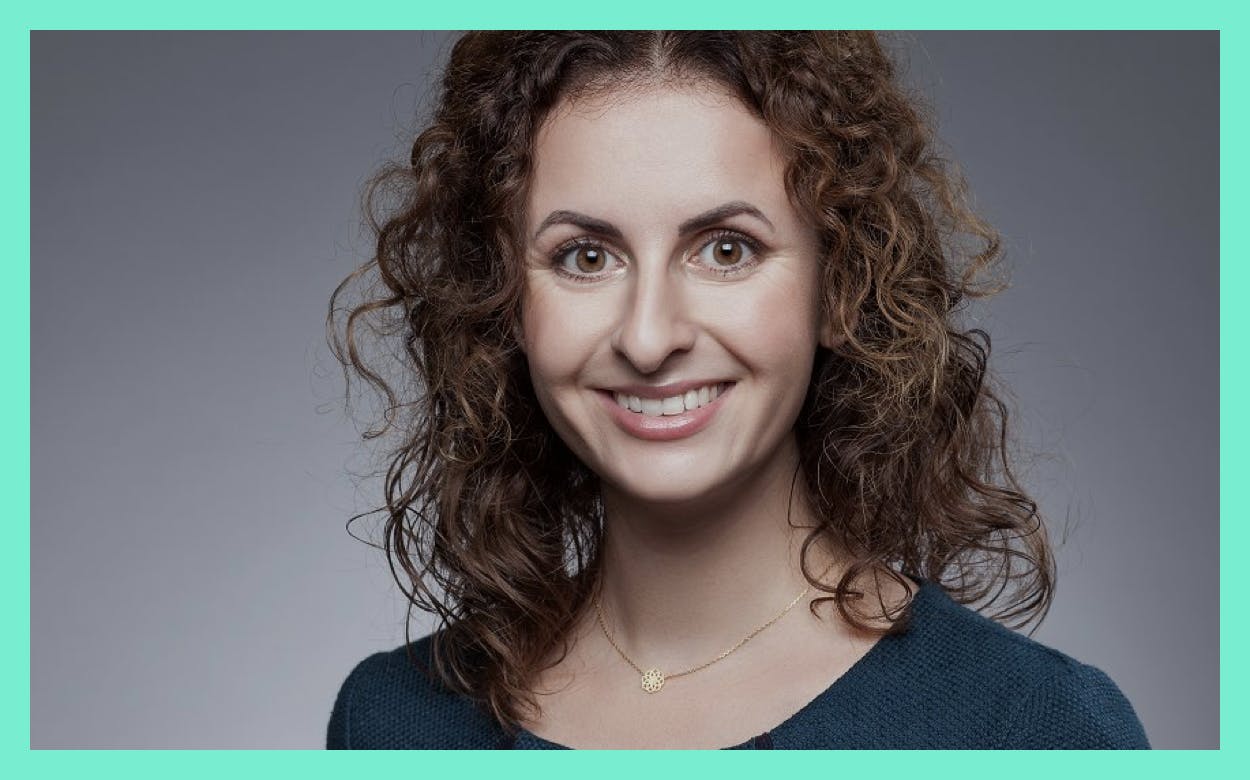Monika Rimmele (Head of Digital Transformation, Siemens Healthineers)
Monika Rimmele is Head of Digital Transformation within the Business Line Digital Health at Siemens Healthineers. She heads a team that combines strategic market and competitor analysis with foresight and innovation management, actively contributing and shaping the Digital Health business and its environment. In this capacity, Monika is in contact with governments, international organizations, associations, and other stakeholders. She focuses on future topics such as artificial intelligence, data analytics, population health management, and new technologies. Monika is a member of the Health Board of FightBack, a political scientist with a Master of Public Policy (MPP) from the Hertie School of Governance in Berlin, and has worked in various government and government-related functions prior to joining Siemens Healthineers in 2017.

Can you explain your job to a five-year-old?
Unfortunately, we all get sick sometimes, and if you get really sick, the disease requires special care. Therefore, many people around the world are relentlessly looking for new treatments and technologies to make sick people healthy or to prevent healthy people from getting sick. These treatments are changing as we learn more about diseases, but also as technologies change. For example, computers and smartphones offer many new ways to treat diseases. My job is to learn about these new treatments and technologies, and how they change how we take care of sick people. And then, we think of what doctors and hospitals will look like and what they will do in many years. And how we can help sick people in getting better, and how we can help people live healthier and happier lives.
What excites you most about your job?
The possibility to change healthcare for the better for everyone! Healthcare, especially digital health, has become a very dynamic sector with much potential for disruption over the last several years, and I really enjoy being a part of that exciting ecosystem. At Healthineers, my job is to combine market and competitor insights with strategy, foresight, and product innovation for a global company that is leading innovations in many product segments. I get to shape our vision for future health, explore new ideas, and think creatively outside the box. It really motivates and inspires me to work with visionary experts around the globe, also outside of Healthineers. I want to contribute with my work and my vision to create the healthcare system of tomorrow.
Which trend will change the future of medicine?
We are finally realizing the staggering impact of social determinants of health and the environment on our individual and public health. Further accelerated by COVID-19, we realize that healthcare is everywhere and influenced by everything. A flaw of current healthcare systems has become increasingly clear: we often do not look at an individual’s health holistically, but only reactively at a certain point in time, namely when s/he is sick and needs treatment. Behavioral and environmental health will play a big part in the future of health, to enable individually-tailored care and treatment that also proactively prevents diseases. This will speed up a second trend: the shift of care to people’s homes. I am convinced that health and care at home will be an important part of future health, and that it will add exciting new possibilities to healthcare as smart home and other technologies (e.g., robotics and 3D printing) advance.
Looking back, which trends have you missed or underestimated?
A few years ago, I underestimated the importance and impact of speech recognition and natural language processing technologies. Now I think these technologies will be a key element in any industry, as devices will be seamlessly integrated and less visible in the future. Also for healthcare, this offers exciting new possibilities and a deeper, more natural integration of technologies. Immediately, the benefits for the elderly and the disabled come to mind, as these groups do not have to operate complicated devices with their own hands, but can verbally interact with the technology instead. This trend could further elevate the power of tech giants in healthcare as they— currently—are leaders in this technology.
Which MedTech initiative or startup deserves more attention?
I do not want to highlight only one. I see many great initiatives and startups emerging around equality and diversity to ensure that access to healthcare is fair, transparent, safe, and evidence-based for all. I am excited about the boom in FemTech, but also about the increasing focus on social determinants of health and behavioral health.
Where would you put a million dollars?
I firmly believe that digital health solutions will empower consumers to actively manage their health and to make informed decisions regarding their health. However, we also have to concede that the average patient today would not be able to navigate this new digital landscape, and that they would be overwhelmed. The best digital solutions will not provide a benefit for health systems if they are not used safely and to their fullest potential. I would therefore invest in health and tech literacy to ensure individuals learn to navigate this new digital health landscape and feel informed and comfortable as we slowly step into that future. Empowered by health and tech literacy, the digitalization of healthcare will also mean a democratization of healthcare by increasing access to health services.
What’s the best advice you’ve ever received?
Do not limit yourself to how things are currently done or how things used to be done, but rather, think critically and creatively if it makes sense to do things a certain way or if there is a better, more meaningful way to do them.